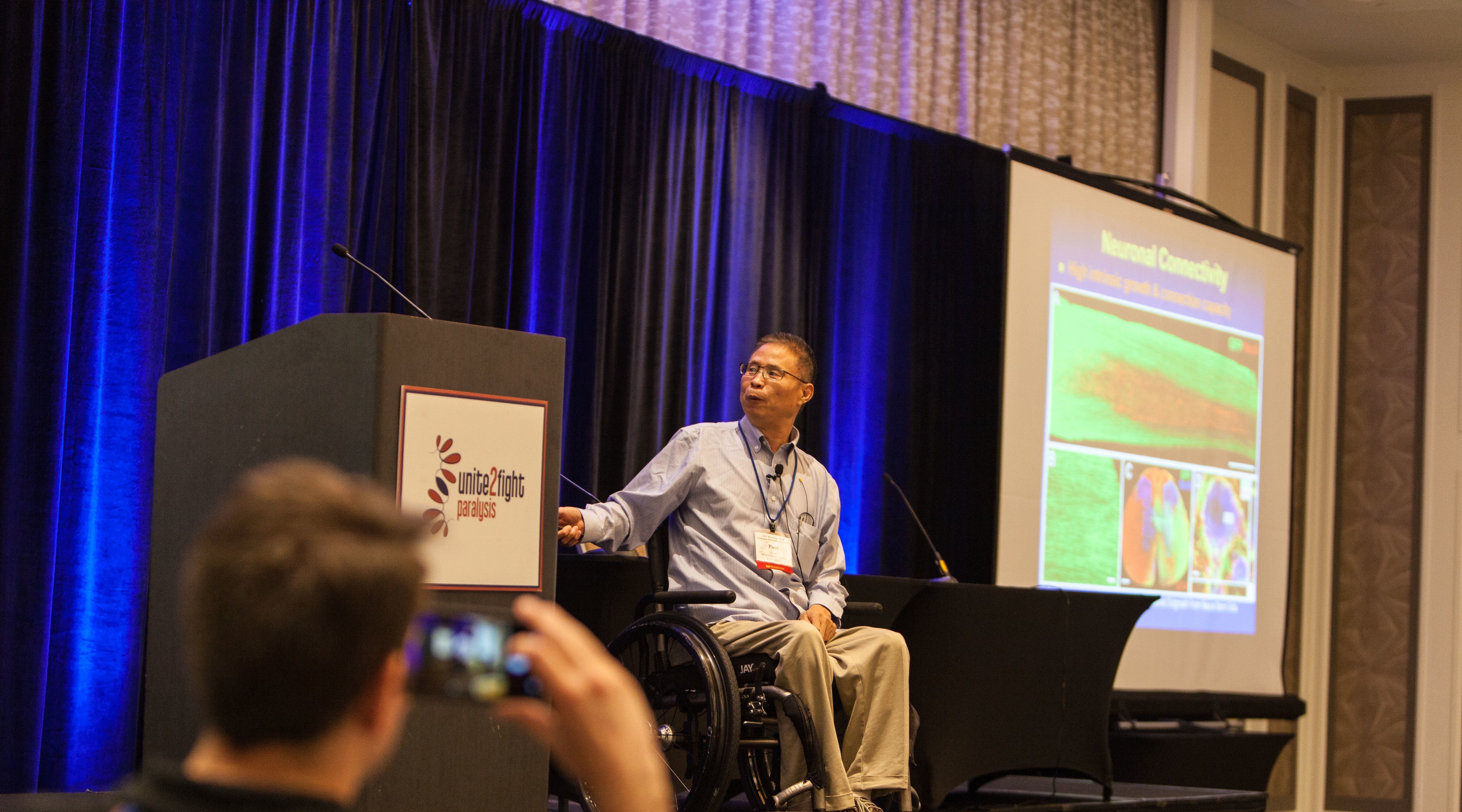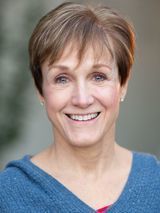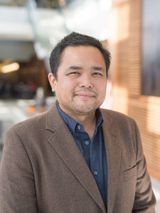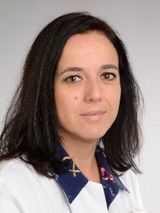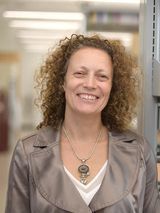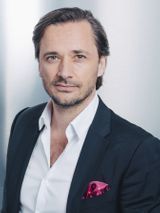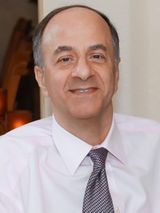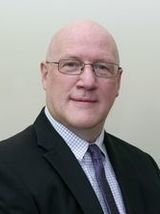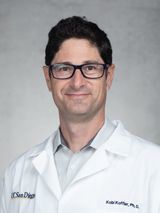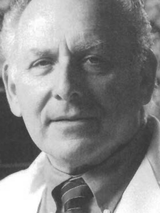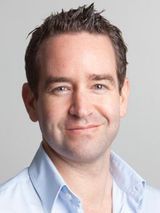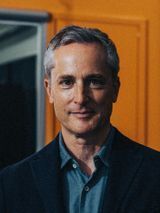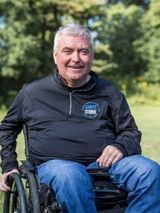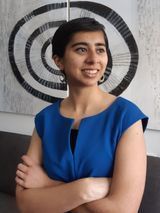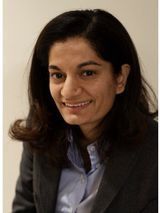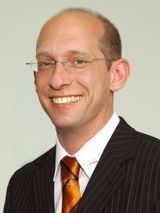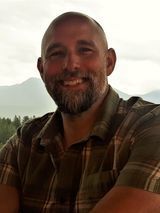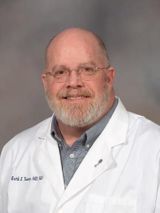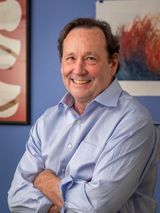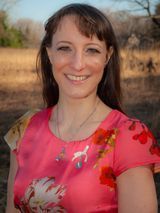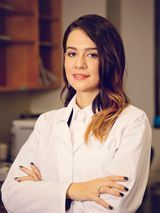Confirmed speakers as of October 16th, 2021.
-
Marcalee Alexander is a PM&R physician that has practiced at multiple model SCI systems, served as ASIA President and Editor of Spinal Cord Series and Cases. She has centered on sexuality and SCI since 1990, having produced Sexuality Reborn and performed laboratory-based research to delineate how specific SCIs affect arousal and orgasm, thus, facilitating better treatments. Having survived cancer in 2005, she adjusted her career path, adapting a more integrated approach to optimize sexual and quality of life for people with SCIs. Dr. Alexander is President of Sustain Our Abilities and cohosts, Everlasting Love. She is the author of Sexual Sustainability: A guide to having-a great sex life with a spinal cord disorder and the author of More Sex, Less Drugs. Realizing the importance of accessibility to healthcare and the importance of addressing climate change for all, she is also Editor of Telerehabilitation: Principles and Practice and The Journal of Climate Change and Health.
-
Warren J. Alilain is an Associate Professor in the Department of Neuroscience at the University of Kentucky (UK) College of Medicine and his laboratory is a part of the Spinal Cord and Brain Injury Research Center. He completed his undergraduate studies at the University of California at San Diego. Following this he was a research assistant at the Veterans Administration (VA) Medical Center in San Diego where he was first exposed to the fields of neurodegenerative diseases and spinal cord injury (SCI). For his graduate and postdoctoral work he trained with the leading experts, Drs. Harry Goshgarian and Jerry Silver, and focused on rodent models of cervical SCI and the resulting respiratory motor deficits. Dr. Alilain has continued this line of investigation in his own laboratory which he started in 2011 at MetroHealth Medical Center at Case Western Reserve University School of Medicine in Cleveland, Ohio. In 2015, he moved his laboratory to UK. In addition to cervical SCI, his research interests include neural plasticity in both injury and learning models, the therapeutic potential of stem cells, and functional electrical stimulation. Dr. Alilain’s approach towards exploring strategies to restore function after SCI is through first developing a pre-clinical animal model which closely reflects the human clinical population. This includes the use of cervical contusion injuries, chronic injured animals, and “humanized” rodents in order to develop personalized therapeutic interventions. Dr. Alilain has reviewed for 20+ scientific journals and a number of federal and private funding agencies including the Craig H. Neilsen Foudation, the National Institutes of Health, National Science Foundation, the VA, and the Department of Defense. He is currently a committee member on the Research Committee of the American Spinal Injury Association. Lastly, he founded and created an online SCI seminar series now known as the International Online SCI Research Seminars (IOSCIRS) during the COVID-19 pandemic.
-
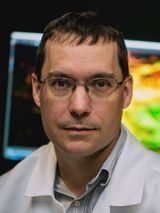 Murray Blackmore, PhD | Associate Professor of Biomedical Sciences, Marquette University
Murray Blackmore, PhD | Associate Professor of Biomedical Sciences, Marquette UniversityDr. Murray Blackmore received his undergraduate degree from Stanford University, and his graduate degree in neuroscience from the University of Minnesota. During his postdoctoral training at the Miami Project to Cure Paralysis, Dr. Blackmore studied axon regeneration and adopted High Content Screening methods to identify new gene targets to promote neural repair. Later, as a Research Assistant Professor at the Miami Project, Dr. Blackmore used a gene therapy approach to test these new gene targets for the ability to promote axon regeneration in the injured spinal cord. Dr. Blackmore is continuing this line of research at Marquette University, using viral delivery of genes to injured neurons in rodent models of spinal injury in order to foster repair.
-
Jocelyne Bloch graduated in the Faculty of Medicine of Lausanne University in December 1994. She completed her neurosurgical degree in 2002. She completed her neurosurgical degree in 2002, specializing in stereotactic and functional neurosurgery, and acquired an extensive experience and expertise in deep brain stimulation (DBS) and neuromodulation for movement disorders, pain and epilepsy. She is in charge of the functional neurosurgical unit at the CHUV. Very active in experimental medicine and translational neuroscience, she nourishes a profound interest in the development of new indications for DBS, and in advancing technologies and therapeutic paradigms in neuromodulation, neuro-regeneration, and cell therapy. She seeks to gather all these novel therapeutic strategies under a common umbrella that will foster optimization of treatment options for patients suffering from neurological impairments. She is now associate Professor in the department of Neurosurgery at the University Hospital Lausanne (CHUV) and adjunct Professor in the Center for Neuroprosthetics at EPFL where together with Grégoire Courtine she is director of the Defitech Center for Interventional Neurotherapies (NeuroRestore).
-
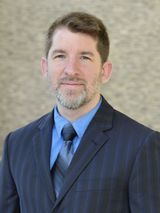 Dennis Bourbeau, PhD | Research Investigator, Louis Stokes Cleveland VA Medical Center; Staff Scientist, MetroHealth Medical System; Assistant Professor, Case Western Reserve University School of Medicine
Dennis Bourbeau, PhD | Research Investigator, Louis Stokes Cleveland VA Medical Center; Staff Scientist, MetroHealth Medical System; Assistant Professor, Case Western Reserve University School of MedicineDennis Bourbeau is a research scientist with appointments at the Louis Stokes Cleveland VA Medical Center, the MetroHealth Medical Center, and Case Western Reserve University School of Medicine. Dr. Bourbeau’s research focuses on understanding the neural mechanisms underlying control of pelvic autonomic functions, including bladder, bowel, and sexual function, and on developing approaches that use electrical stimulation to restore these functions when lost to spinal cord injuries or other neurological disorders. Such approaches would provide alternatives to surgeries or drugs. With his collaborators, he has conducted translational studies with human study participants with spinal cord injury using electrical stimulation to inhibit unwanted bladder contractions and improve urinary continence. Other projects include electrical stimulation to inhibit unwanted reflex sphincter contractions to improve bladder emptying; wireless bladder and bowel sensors for automatic control of these electrical stimulation approaches; and electrical stimulation to improve colonic motility for individuals with chronic constipation.
-
 Quinn Brett, MA | National Park Service
Quinn Brett, MA | National Park ServiceQuinn is an adventurer and professional athlete, tying herself to Estes Park, Colorado for the last fifteen years. When not gallivanting around the globe attempting personal goals, Quinn worked as a climbing ranger in Rocky Mountain National Park. To compliment the rescue and medical component of this job, Quinn taught Wilderness Medical Courses with Remote Medical International during the winter months. In October 2017, Quinn fell over 100 feet while climbing on El Capitan in Yosemite National Park. Quinn sustained a spinal cord injury, leaving her paralyzed from the waist down. Movement in public lands was a big part of life and vocation for Quinn. She is back with the National Park Service, broadening recreational opportunity for those with disabilities in our National Parks. Her work involves accessibility in the front country, as well as education and awareness of what makes a backcountry trail more usable.
-
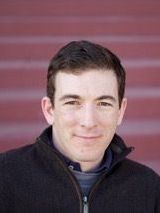 Jake Chalfin | Chair, PA Spinal Cord Research Advisory Committee; SCI Community Liaison, Lane Lab, Drexel University
Jake Chalfin | Chair, PA Spinal Cord Research Advisory Committee; SCI Community Liaison, Lane Lab, Drexel UniversityJacob Chalfin first attended U2FP’s Annual Symposium (formerly Working 2 Walk) in 2012 and has been a supporter of U2FP thereafter. Through his connections at U2FP, Jake and his wife teamed up with a small group of advocates in Pennsylvania and successfully lobbied for a bill that now provides $1M in annual funding for SCI research. As a result of this bill’s passage, Jake chairs the PA Health Department group, the Spinal Cord Research Advisory Committee (SCRAC), which manages
the funding process and is now in its second year. Jake also participates as a consultant with the Lane Lab SCI research department at Drexel University. This unique role provides perspective from the SCI community with the goal of creating a tangible connection between the urgent need for actionable treatments and theoretical science. Jake has a Bachelor of Science degree from Colorado State University, is a Township Supervisor and a Sales Manager for over 20 years with Laurel Valley Soils, Inc. While competing as an amateur steeplechase jockey, Jake sustained a spinal cord injury in 2010. He has a C-7 lesion ASIA B, and is paralyzed from the chest down. Post injury, Jake worked hard to live an active lifestyle traveling on vacations and participating in adaptive sports. Jake married in 2015, and he and his wife were fortunate enough to conceive through IVF and have two vibrant healthy children. -
Dr. Lique Coolen is Professor of Biological Sciences at Kent State University and serves as Associate Dean in the College of Arts and Sciences. She received her Ph.D. from the University of Nijmegen in the Netherlands in 1995 and has been on faculty at the University of Cincinnati, University of Western Ontario, University of Michigan, and the University of Mississippi Medical Center. She has received numerous awards for her research and teaching, including the CJ Herrick award from the American Association of Anatomists and the Canada Research Chair in Neurobiology of Motivation and Reward. She has published over 130 papers describing her research on spinal cord injury, drug addiction, and neuroendocrine function, and has been continuously funded by NIH and other federal agencies during the past 20 years.
-
Grégoire Courtine was trained in Physics and Neurosciences. His passion for translational neurosciences has fueled his research in the development of neurotechnologies to improve recovery from neurological disorders. After obtaining the Chancellor Award during his post-doc at the University of California Los Angeles (UCLA), he established his own laboratory at the University of Zurich in 2008 before joining the Swiss Federal Institute of Technology Lausanne (EPFL) in 2012. He is now Full Professor of Neuroscience and Neurotechnology in the Center for Neuroprosthetics at EPFL and adjunct Professor in the department of Neurosurgery at the University Hospital Lausanne (CHUV) where together with Jocelyne Bloch he is director of the Defitech Center for Interventional Neurotherapies (NeuroRestore). He is also Chief Scientific Officer (CSO) of GTX medical, a start-up he founded in 2014 to translate the neurotechnologies developed in his laboratory into clinical treatments.
-
Franklin was 24 when he suffered his spinal cord injury. While vacationing at a beach on the East Coast, he dove through an oncoming wave of water, not realizing there was an elevated level of sandbar behind the wave, suffering a C6, Complete, ASIA A injury. Though blessed with strong upper body motor function, he has no mobility below the chest level.
He was a Santa Clara Valley Medical Center peer supporter from 2005 to 2017 and partnered with Ron Sidell and Nick Struthers as part of The Patterson Network Project before co-founding NorCal SCI. Franklin has always been employed in sales and marketing and has traveled domestically and internationally. A resident of San Jose since 1985, he graduated from San Jose State University in 1986 and has been employed in the field of sales & marketing ever since.
“Back in 1989, when I suffered my injury, there were no peer support groups, no Internet, e-mail or texting. We had to literally figure things out on our own. The amount of information that today’s SCI survivors must learn is exactly the same as what it was back in ’89 but unfortunately, typical rehab stays are now 1/4 of what they were back when I was injured. We can help make a major difference in advancing one’s ‘quality of life’ by communicating with them before they leave the hospital so that we can make the transition back to their home communities as comfortable as possible while showing them how they can still lead a very productive, active and fulfilling life. We want to be available to them as long as they want us.” -
 Traci Fernandez | Founder & Managing Partner, TRYAbility Neurorecovery Center
Traci Fernandez | Founder & Managing Partner, TRYAbility Neurorecovery CenterTraci has owned and operated numerous organizations throughout her career and has held Executive positions at several Fortune 500 companies. Currently, Traci is a
Founder and Managing Partner at TRYAbility in Chicago. TRYAbility provides Intensive Activity Based Rehabilitation services to individuals with Paralysis. TRYability’s mission
is to help patients optimize their recovery, maintain long term health and foster a connected community. Prior to TRYAbiity, Traci was a Founder and President of 3C Compassionate Care Center. As a founder of 3C, Traci successfully opened and operated two of the largest Medical Marijuana dispensaries in Illinois. Traci also was a Founder and President of Operations at iGenMedia, an application software and development company. Before opening iGen, Traci held Technical and Executive roles at Arthur Andersen, IBM and the Tribune Company. Throughout her career, Traci has excelled at both Technical and Executive positions and was twice awarded Employee of the Year for her contributions. Traci received her bachelor’s degree in Information and Decision Sciences from the University of Illinois. In addition to working with U2PF, Traci founded the United Paralysis Organization after becoming paralyzed in 2008 from Transverse Myelitis. Since founding the charity, Traci has worked as an advocate, raising monies to find a cure for neurological conditions and promoting therapies for those with Spinal Cord Injuries. -
Jim Hamer works at DP Clinical, Inc., a full-service Contract Research Organization (CRO) based in Rockville, MD, specializing in SCI clinical trials. Jim has over 24 years of SCI research and clinical trial experience working with biotech, pharmaceutical and medical device companies. Jim started as a Clinical Research Associate in 1996 and monitored clinical trials in a variety of therapeutic areas including SCI studies. During this time, he also assisted in the management of the largest benchmark acute SCI clinical trial, the Sygen GM-1 Study. During his career, Jim has managed numerous acute and chronic SCI clinical trials with pharmaceuticals, autologous macrophages, the first in human sub-acute stem cell trials for Thoracic and Cervical SCI subjects as well as device studies. Jim understands the challenges of conducting SCI clinical trials and with his strong SCI knowledge he provides potential clients input on study design and assessments for their clinical trials. Working together on these trials to cure paralysis, Jim is hopeful that one day soon, he will witness a curative therapy approved for this debilitating injury.
-
Dr. Koffler is an assistant professor of neurosciences and the head of the Neural Engineering lab at the Department of Neurosciences, School of Medicine, UC San Diego. His lab study axonal regeneration after traumatic injury such as spinal cord and peripheral nerve injury. His approach to promote and enhance axonal regeneration involves interdisciplinary science using 3D-printing, biomaterials, stem cells, neuroscience, and drug delivery to create biomimetic devices implanted in the injury site and integrate with the host to guide regeneration. These research programs range from feasibility studies in rodents to preclinical studies aiming to improve patients’ lives.
-
Barry R. Komisaruk is Distinguished Professor, Psychology, Rutgers University-Newark; initial appointment: 1966. Education: City University New York, B.S. Biology, 1961;
Rutgers University, PhD Psychobiology, 1965; UCLA, Postdoctoral NIH Fellow, 1966. Program Director at NIH-NIGMS; Associate Editor, Journal of Sexual Medicine, Sexual
Medicine Reviews. Research discoveries: first identification of brain regions activated during orgasm in women; first organic cause of PGAD (Persistent Genital Arousal
Disorder) being Tarlov cysts or herniated intervertebral discs; first evidence that the Vagus nerves convey genital sensation in women with complete spinal cord injury; first
demonstration of, and mechanism underlying, the pain-blocking action of vaginal stimulation. Grant funding: NIH, NSF, NJ State, private foundations. 175 refereed
research articles, 5 co-authored/edited books, including “The Science of Orgasm,” published in 7 languages. Awards: Hugo F. Beigel Research Award in Sexuality;
Bullough Award of the Foundation for the Scientific Study of Sexuality. Students: doctoral dissertations of 27 PhDs, 21 postdoctoral scholars. -
Michael Lane, PhD, is an associate professor in the Department of Neurobiology & Anatomy at Drexel University College of Medicine. He leads a research team consisting of two graduate students and one junior faculty member (instructor). Prior to coming to Drexel, Dr. Lane was an assistant professor in the Department of Neuroscience at the University of Florida, McKnight Brain Institute. He also served as a lecturer in the annual NIH-funded Spinal Cord Injury Training Program at The Ohio State University from 2009 to 2013.
-
Yi-Kai Lo is an entrepreneur, engineer, and scientist who started his career as an integrated circuit designer and then eventually dived deeply into the interdisciplinary field of neuroscience, neuroengineering, and bioelectronic medicine. He received his PhD in Bioengineering at the University of California, Los Angele with the objective to investigate underlying biological mechanisms and then develop and validate relevant new devices and technologies. In 2016, he co-founded ANEUVO, a company dedicated to developing bioelectronic treatments for chronic conditions and injuries incurable through pharmaceutical agents.
-
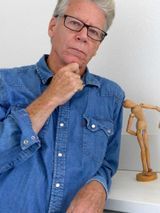 Sam Maddox | Scientific Advisory Board Director, U2FP
Sam Maddox | Scientific Advisory Board Director, U2FPSam Maddox is the director of the U2FP Scientific Advisory Board. He was a co-founder and former Knowledge Manager of the Reeve Foundation Paralysis Resource Center and was Reeve’s primary biomedical research writer. Maddox is the author of several books, including numerous editions of the Paralysis Resource Guide. He wrote the first comprehensive history of spinal cord injury research, Quest for Cure. Maddox wrote and published the book Spinal Network, and founded New Mobility, the leading disability magazine in the U.S. Most recently, he published SCI: First 90 Days, targeting newly injured individuals and their families. Maddox was a steering committee member of The Consortium for Spinal Cord Medicine, which develops evidence-based clinical practice guidelines for professionals and consumers. Maddox reported for many magazines, including Time, Money and People. Maddox is a graduate of the University of Colorado, where taught in the School of Journalism. He lives in the Los Angeles area.
-
Dave Marver is CEO of ONWARD, a company creating therapies to restore movement, independence, and health for people with spinal cord injury. Prior
to joining ONWARD, Dave spent almost 15 years with Medtronic in a variety of leadership positions around the world. Later, Dave served as CEO for
Cardiac Science Corporation, a NASDAQ-listed company and leader in defibrillators and other cardiac equipment. He then founded and ran a sports
technology start-up, which developed two TIME Magazine Inventions of the Year. Dave has been an advisor to the World Bank’s International Finance Group.
He has guest lectured at the graduate business schools for Duke University, University of Washington, and University of California at Los Angeles. Dave
earned a BA from Duke University and an MBA from University of California at Los Angeles. He currently resides in Lausanne, Switzerland. -
Barry Munro is the Chief Development Officer of the Canadian/American Spinal Research Organization, which was established in 1984 to fund targeted research to maximize functional recovery and cure paralysis caused by spinal cord injury. Barry also currently holds the position of Treasurer for the North American Spinal Cord Injury Consortium, a community led organization which has the mission to bring about unified achievements in research, care, cure, and policy by supporting collaborative efforts across the spinal cord injury community. Barry is a lawyer by trade and practiced personal injury law for over 10 years. Barry is a quadriplegic who sustained a spinal cord injury in 1987 and has been an active advocate in SCI research for over 30 years. He has been a Director on the Board of Unite 2 Fight Paralysis for the last 4 years.
-
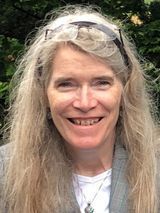 Nancy Nicholas, MBA | SCI Community Liaison in the Blackmore Lab, Marquette University
Nancy Nicholas, MBA | SCI Community Liaison in the Blackmore Lab, Marquette UniversityNancy Nicholas received her Bachelor's of Science in Chemical Engineering from Rensselaer Polytechnic Institute in Troy, New York. She later earned a Master’s in Business Administration from Seattle University. Nancy is a retired executive from the Boeing company, where she held a variety of positions starting in manufacturing research and development and culminating in program management. She sustained a spinal cord injury while mountain biking with her family in 2013. Nancy serves as the SCI Community Liaison to the Blackmore lab at Marquette University, where she shares her lived experience and represents the SCI community in the research process.
-
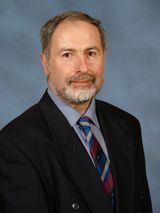 Peter Nowell | Co-chair, Ohio SCI Advisory Board
Peter Nowell | Co-chair, Ohio SCI Advisory BoardPeter Nowell sustained a C4/5 incomplete spinal cord injury in 2005 as a result of a motorcycle accident. He completed he rehab at OSU Wexner Medical Center, slowly getting back to walking with a cane and driving with normal foot controls after about 12 months. Previously a Plant Manager for a plastics extrusion factory, Peter changed careers to become a cost reduction consultant for 10 years, but now dedicates his time to SCI advocacy work. About 6 years ago Peter became a certified peer mentor with the Christopher and Dana Reeve Foundation and started the central Ohio SCI Peer Mentor program with OSU and has mentored over 50 patients, and since COVID has been running two SCI Peer support groups via zoom each month. Peter likes to travel with his wife and has had the opportunity to try many new activities since his accident; kayaking, using a snow ski-bike, hang gliding and sitting in with fellow SCI patients driving race and rally cars.
-
Arushi Raina is the Director of Commercialization at Praxis Spinal Cord Institute. She has been integral in developing, managing and overseeing the Praxis SCI Accelerate and SCI Incubate Programs, the first international incubator-accelerator programs focused on SCI technologies. Arushi has a background in healthcare, innovation and working with leadership teams. Prior to joining Praxis, she worked as an healthcare strategy consultant, and for a traumatic brain injury start-up company. She also worked at KPMG Canada for several years in the healthcare practice, focus on public system changes and clinical program design. She holds an MBA from the Ivey Business School from Western University in Ontario, Canada, and BA honors in English and Economics from Vassar College in NY. Recognizing her leadership in healthcare, she was awarded the British Columbia Top 30 under 30 in 2020. She is a board member at Portland Hotel Society in Vancouver, BC, and a published novelist.
-
Sabhya Rana received her B.S. in Biological sciences from University of California, Irvine (2008-2011). She worked in the lab Dr. Oswald Steward at the Reeve Irvine Research Center (2010-2013), an experience which solidified her interest in SCI research. She received her PhD in Neuroscience (2014-2018) under Drs. Carlos Mantilla and Gary Sieck at the Mayo Clinic, where she studied mechanisms of neuroplasticity supporting respiratory recovery following SCIs. In 2019, Sabhya joined the lab of Dr. David Fuller as a postdoctoral associate at University of Florida, where she is investigating the impact of ampakines to enhance respiratory function in a pre-clinical model of SCI. Sabhya has been a founding contributor to the International Online Spinal Cord Research Seminars. She also serves on the Diversity Equity and Inclusion sub-committee and is deeply committed to supporting conversations between the SCI community and researchers in order to make meaningful strides towards a cure.
-
Dr. Uzma Samadani is a private practice board certified neurosurgeon in Minneapolis, MN. She has been listed as a five-time “Top Doctor in Neurosurgery” by Minneapolis-St. Paul Magazine and Minnesota Monthly. In 2018, she was on the cover of the “Top Doctors” edition with the byline “The Doctor Will Save You Now.” She has also been named a “Courageous Women in Healthcare” by the Women’s Health Leadership Trust. Dr. Samadani is an Associate Professor in the Dept of Bioinformatics and Computational Biology at the University of Minnesota, with a faculty appointment in Neuroscience. She is also a staff neurosurgeon at the Minneapolis Veterans Administration Medical Center. She is on the Executive Committee of the American Association of Neurological Surgeons/Congress of Neurological Surgeons Section on Neurotrauma and Critical Care and serves as Board Chair for the ThinkFirst Foundation. She is a Past-President of Women in Neurosurgery. Dr. Samadani has received more than $5M in research grants and published more than 100 papers on brain and spinal cord injury.
-
Dr. Solzbacher is Professor and Chair of the Department of Electrical and Computer Engineering. He also holds adjunct appointments as Professor in Materials Science and Professor of Biomedical Engineering at the University of Utah. He is a fellow of the American Institute for Medical and Biological Engineers AIMBE and a Senior Member of the Institute of Electrical and Electronics Engineers IEEE. He is Co-Founder, President and Executive Chairman of Blackrock Microsystems. His research focuses on harsh environment microsystems and materials, including implantable, wireless microsystems for biomedical and healthcare applications, and on high temperature and harsh environment compatible micro sensors. He is co-founder of several companies and member of a number of company and public private partnership advisory and reviewer boards and conference steering committees in Europe and the US. He is author of over 190 journal and conference publications, 5 book chapters and 16 pending patents.
-
Jason Stoffer lives in the Rockies of Northwest Montana with his wife and three children. He has a B.S. degree in Natural Sciences/Biology from the University of Alaska, Anchorage. Jason's love of outdoor adventure led him to work and play there as a mountaineer, long distance hiker, wild-land firefighter, search and rescue technician, EMT, and Law Enforcement Officer. A single vehicle rollover on his commute to work one morning resulted in an L1 Spinal Cord Injury (SCI) and paraplegia. He attended Craig Hospital for inpatient rehab as well as the Brooks Cybernic Treatment Center. Jason is a strong proponent for functional recovery research. He works with U2FP as a CAN Manager and CureCast Co-host and is a Research Reviewer for CDMRP. Jason continues to pursue an active lifestyle by building a home, getting outside and engaging with his community.
-
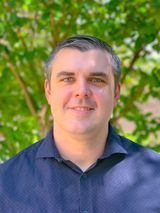 Tommy Sutor, PhD | Postdoctoral Research Scientist, Hunter Holmes McGuire VA Medical Center
Tommy Sutor, PhD | Postdoctoral Research Scientist, Hunter Holmes McGuire VA Medical CenterTommy is a Postdoctoral Research Scientist in the lab of Dr. Ashraf Gorgey at the Hunter Holmes McGuire VA Medical Center in Richmond. His current research focuses on different ways that epidural and transspinal stimulation can be used to augment rehabilitation and improve function for people with spinal cord injury (SCI). His interest in SCI began when working as a trainer and Program Director of Push to Walk, a gym specializing in providing activity-based training to people with SCI and other neurological disorders. Tommy’s scientific training also includes a PhD in Rehabilitation Science from the University of Florida under Dr. Emily Fox, where his primary focus was understanding breathing deficits and conducting clinical research to improve breathing after SCI. Following this, he spent a short time as a Postdoctoral Research Scientist at the Malcom Randall VA Medical Center under the mentorship of Dr. Joshua Yarrow, where he worked with animal models of SCI to understand how physical rehabilitation can be used to improve muscle and bone function. All these opportunities enabled Tommy to experience many aspects of the “bench-to-bedside” spectrum of translating findings from basic science into hands-on therapies for people with SCI. Building on all this, Tommy’s career goals are to understand how to maximize sensory and motor gains from activity-based training and physical rehabilitation, and to work with stakeholders from other aspects of the translational spectrum to understand how activity-based training may fit into multi-modal curative therapies. In addition to numerous publications and conference presentations, he is an active contributor to the Activity-Based Training Public Health Impact Working Group for Unite 2 Fight Paralysis and a member of the American Congress of Rehabilitation Medicine Spinal Cord Injury Fitness and Wellness Task Force.
-
Keith E. Tansey, MD, PhD, FASNR, FASIA, is a Senior Scientist in the NeuroRobotics Lab of the Center for Neuroscience and Neurological Recovery at Methodist Rehabilitation Center, a Professor in the Departments of Neurosurgery and Neurobiology at the University of Mississippi Medical Center, and a Physician on the SCI Medicine and Research Services at the VA Medical Center in Jackson. Dr. Tansey has been board-certified in Neurology, Spinal Cord Injury Medicine, and Neural Repair and Rehabilitation. He has served on the boards of the American Society for Neurorehabilitation (Fellow), and the American Spinal Injury Association (Past-President and Fellow). Dr. Tansey has also recently edited a textbook, “Neurological Aspects of Spinal Cord Injury” (Springer). Dr. Tansey has studied plasticity in neural circuits for pain, autonomic function, locomotion, and upper extremity function in animal models and humans after spinal cord injury, with an interest in shaping that plasticity to improve functional recovery.
-
Dr. Taylor is the Principal Investigator for Spaulding’s Cardiovascular Research Lab. He holds a Ph.D. in physiology from the University of Arizona. He had postdoctoral fellowships at Duke University Medical School and the Medical College of Virginia before joining the Harvard Medical School Faculty. He is currently an Associate Professor at Harvard Medical School, Associate Chair for Research in Physical Medicine and Rehabilitation, and a Fellow of the American Heart Association. He has published over 100 research articles on topics such as the impact of microgravity on blood pressure control in astronauts, the effects of exercise on human aging, and most recently the beneficial effects of functional electrical stimulation of the legs for rowing exercise in those with spinal cord injury.
-
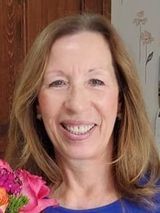 Cynthia Templeton | Founder, Push to Walk
Cynthia Templeton | Founder, Push to WalkCynthia Templeton has been working on the formation of an Association for the centers and professionals who provide activity based training (ABT) around the US and Canada for over 10 years. She founded Push to Walk (NJ) with her son Darren, who sustained a C5 SCI in 2004. Cynthia has seen the need for places like Push to Walk to organize themselves, share best practices and unite with one voice for the ABT programs that benefit so many people with paralysis. Working with a core group of individuals dedicated to this mission, the Association of Neuro Activity Based Professionals (ANABP) received its 501C6 status as a trade association from the IRS. The priorities of ANABP include developing a membership base and creating a certification program for trainers. While staying involved with Push to Walk on special projects, Cynthia has been able to devote time to this important project.
-
Ann Van de Winckel is Assistant Professor in the Division of Physical Therapy and in the Division of Rehabilitation Science, Department of Rehabilitation Medicine, Medical School, University of Minnesota. She is the Director of the Brain Body Mind Laboratory. Her research focus is to investigate brain mechanisms of how mind and body approaches may work to improve daily life of people with chronic conditions and chronic pain. She has 22 years of experience in body awareness-related brain imaging research and research about the mechanisms of Cognitive Multisensory Rehabilitation, which is a physical therapy approach that focuses on recalibrating body awareness in adults with neurological conditions and/or with chronic pain. More recently, her research has been geared towards implementing body awareness-related interventions in clinical trials and in brain research in adults with low back pain, in adults with spinal cord injury and in adults with spinal cord injury-related neuropathic pain.
-
Following a 1981 accident from which Bob became a quadriplegic, Bob has dedicated himself to raising funds for basic research aimed at developing a cure for spinal cord injury. From 1982 to 2011 Bob was a member of the national board of directors of the group now known as the Christopher and Dana Reeve Foundation (until May 1999 known as the American Paralysis Association), a national, not-for-profit organization whose goal is to develop the earliest possible cure for paralysis caused by spinal cord injury. Since he began raising money for spinal cord regeneration research, Bob has raised over $17 million. In 1989 Bob founded Research Medical, a medical supply company, which donated 10% of pre-tax profits to medical research. Research Medical also had a strong interest in hiring people who use wheelchairs, with wheelchair users comprising approximately 50% of the 50 employees in 1996, when the company was sold. Bob has been a founder or board member of 14 different charities. He served on the board of directors of the SEED (Self Employment for the Entrepeneuring Disabled) Institute, a not-for-profit group that seeks to train disabled persons to become business entrepreneurs. Bob co-founded the Newport Elementary School Foundation and the Ensign Fund. For six years Bob was the Vice President of the Newport Harbor Educational Foundation. Bob was a member of the board of directors for the Life Rolls On Foundation, which has a nationwide organization to take disabled people surfing. Bob has been very involved in his neighborhood association, serving as Treasurer, Vice President and as President. In 2007 Bob co-founded the Community Foundation of Balboa Peninsula Point. In 2008 Bob founded Cure Medical, a medical supply manufacturing company that donates 10% of net profits to spinal cord regeneration research. The success of the company has allowed significant donations to be made to spinal cord regeneration research. Bob attended the University of California at Santa Barbara and received a Bachelor of Arts degree from UC Berkeley. He lives in Newport Beach, California.
-
Dr. Yarar-Fisher is an Associate Professor at the UAB Department of Physical Medicine and Rehabilitation. Her translational research program focuses on understanding the pathophysiology of traumatic spinal cord injury (SCI) in the acute and chronic stages with the purpose of developing novel dietary and rehabilitation strategies to improve neuro-recovery, metabolism, and bowel function. Thus, her laboratory is currently developing and testing therapeutic diets and electrical stimulation programs to evaluate new ways to prevent neuronal death and promote recovery and function in the acute stages and improve body composition, gut microbiome composition, and skeletal muscle and metabolic health in the chronic stages of SCI. She has received several NIH and NIDILRR funding to support her investigations in SCI. She recently selected as one of the 10 Outstanding Young Persons of Turkey by Junior Chamber International for her work in Academic leadership and/or accomplishment.
-
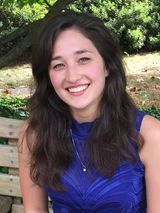 Lyandysha (Lana) Zholudeva, PhD | Postdoctoral Scholar at Gladstone Institutes
Lyandysha (Lana) Zholudeva, PhD | Postdoctoral Scholar at Gladstone InstitutesLyandysha (Lana) Zholudeva completed her Bachelor of Science in Chemistry with a Minor in Biophysics at Creighton University, where she worked on developing non-invasive imaging techniques for quantifying cellular metabolism. Lana then completed her graduate studies in Dr. Michael Lane’s laboratory in the Department of Neurobiology & Anatomy at Drexel University College of Medicine, focusing her work on transplantation of neural cells to repair the injured cervical spinal cord and improve respiratory function. Through this work she developed a passion for harnessing the vast therapeutic potential of stem cells by employing advanced cellular engineering techniques to tailor cells for transplantation. She then transitioned into a postdoctoral position at the Gladstone Institutes, working with Dr. Todd McDevitt, in efforts to build on her experience in spinal cord injury in a more translationally relevant way. Her current scientific efforts are focused on engineering human spinal interneurons from pluripotent stem cells and testing their therapeutic efficacy for promoting repair and recovery after injury and neurogenerative disease.

